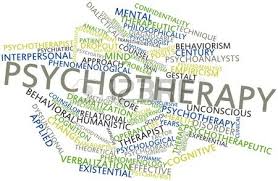Psychology, Psychotherapy or Counselling?

Understanding the differences between the various types of mental health professionals, understanding their roles, and what each does during sessions, can be confusing. However, the most important thing to know is that all three are based on a healing relationship between the therapist and the client.

Psychology is the study of people: how they think, how they act, react, and interact. It is concerned with all aspects of behaviour and the thoughts, feelings and motivation underlying such behaviour.
Psychology training in Australia usually focusses on Mental Health skills training and in particular Cognitive Behavioural Therapy (CBT) approaches. However, many psychologists extend their training and experience to utilise additional approaches such as Action and Commitment Therapy (ACT).
Psychology is a discipline that is firstly concerned with the normal functioning of the mind and has explored areas such as learning, remembering and the normal psychological development of children.

Psychotherapy focuses to a greater extent on achieving change in the personality or self by examining intensively and extensively the individual’s psychological history. Psychotherapy benefits those who notice that the nature of their personal difficulties is repetitive, and similar issues arise time and again in different contexts and relationships. This type of therapy considers overall patterns, chronic issues, and recurrent feelings, rather than narrowing in on individual problems. The aim is to resolve the underlying issues that fuel the ongoing issues.
A psychotherapist helps in resolving past experiences as part of creating the basis for a rich and meaningful life. Psychotherapy helps people achieve better self-understanding and change long-standing patterns of behaviour that may be disrupting relationships, work and study. Psychotherapy is often long term. Aspects of problem solving are integrated into a deeply structural and affective approach that treats symptoms in the context of the whole person.
Additionally, most psychotherapists undergo a period of personal psychotherapy to ensure they have suitable levels of self-awareness.

Sometimes referred to as ‘talk therapy’, typically deals with present issues that are easily resolved and focuses on enhancing people’s capacity to cope with specific life challenges such as relationship endings, bereavement, and anxiety.
Seeing a counsellor helps people resolve crises, reduce distress, develop goals for change and improve their wellbeing. Problems brought to sessions are discussed in the present-tense, with not too much attention being placed on past experiences. The Counsellor guides the client to discover their own answers and support them through the actions that they choose to take. Counselling also assists with problem solving and developing inner resources to move on with life in meaningful ways.

The most important factor when choosing is not whether you need to see a psychologist, psychotherapist, or counsellor, but about finding the right qualified and endorsed therapist with whom you have a connection with. Research shows that this is the most important factor in successful outcomes. At Soothing Minds all our therapists have studied a minimum of eight years, undertaken supervision, and are fully registered with the appropriate registration bodies. More information available at https://soothingminds.com.au/about/
If you have any questions or would like to make an appointment, please contact us on 8448 1106.
